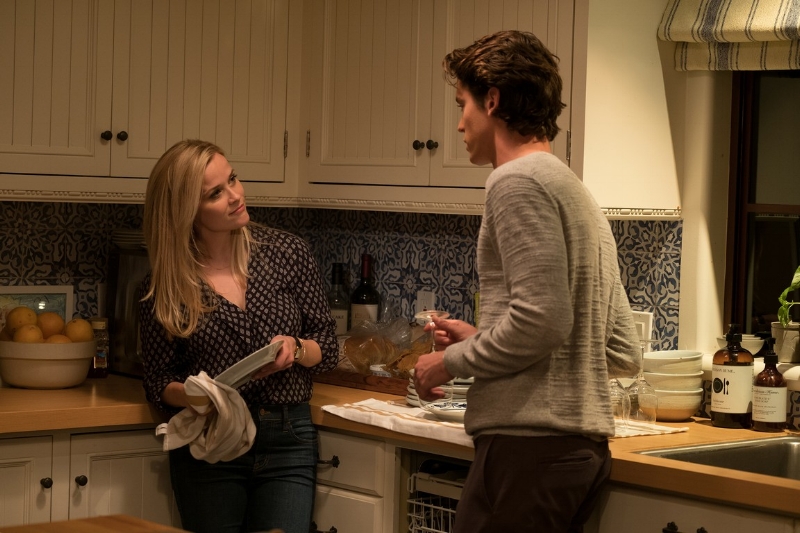THE DEATH OF STALIN
Directing: B
Acting: B
Writing: B+
Cinematography: B+
Editing: B
Maybe The Death of Stalin would be easier to appreciate with a detailed knowledge of early 20th-century Russian history, which I do not possess. This quasi-comedy, directed and co-directed by Veep creator and writer Armando Iannucci, seems to rely at least somewhat on such a shorthand, so much going on in the immediate wake of Joseph Stalin's death that I sometimes found it difficult to keep up. So much dialogue going on at such a pace, even with it spoken in English, subtitles would have been helpful.
The promotions for this movie overtly state that any similarities to current events is intentional, although comparing the circumstances of 1953 Soviet Russia to any current superpower's situation strikes me as comparing apples to oranges. Suffice it to say that the story presented here details the farcical struggles of Stalin's inner circle to realign each person's respective powers in the wake of his death.
The Death of Stalin is undeniably entertaining, but considering its nearly universal acclaim, I did not take to it quite to the degree that I expected. I must admit there were ways it made me uneasy. We are clearly meant to see all these men as power-hungry fools -- and here this is presented in a very similar vein, actually, as the events on HBO's Veep -- but it is also made explicitly clear that these are all truly horrible men, responsible for the countless deaths and imprisonment of innocent people.
I'm all for allowing anything to be subject to a comedic eye, but who can we possibly relate to here? Sympathetic characters are not a necessity in satire, true, but I'm not convinced the satirical element is strong enough here. Then again, any truly sympathetic character in this story would clearly bring down the mood Iannucci is going for.
Instead we get subtle glimpses, such as the uncultured people brought in off the street to fill empty seats at the symphony, when only half the audience is retained to recreate a performance just given but not recorded, but Stalin has called to request a recording. This is the sequence that begins the film, and we see connon people resigned to this random fate for the evening, biding their time knitting or eating from a pickle jar.
There's also something odd about the casting: much like Tom Cruise in Valkyrie (2009), none of the actors here are actually the nationality of the characters they play, and no attempt is made even to change the native accents of the performers. So these are all either British actors (Simon Russell Beale as Lavrenti Beria; Jason Isaacs as Field Marshal Zhukov; Monty Python's Michael Palin as Vyacheslov Molotov) or American actors (Steve Buscemi as Nikita Khrushchev; Jeffrey Tamboor as Georgy Malenkov), playing Russian historical figures with British or American accents. Admittedly this is little more than a matter of preference, but it would have felt more authentic to me if at the very least they had Russian accents. As it is, it feels a little like watching a movie about zany meetings between Western leaders with inexplicably Russian names.
All of that notwithstanding, such distractions are not that difficult to get past. The Death of Stalin is a densely layered cinematic work, one could argue in the tradition of Stanley Kubrick's Doctor Strangelove -- a surface veneer of jaunty lightheartedness that is spread thinly over something deeply depressing and truly dark.
I just wanted it to be longer on the funny stuff and shorter on the darkness, although it would not take much effort to look past the latter in order to better enjoy the former -- which is perhaps part of the point. I got pretty good chuckles at regular intervals. That fleeting mirth just gave way to an unsettling realization of the cycles of history repeating itself.
Everyone thinks: How can I work this to my advantage?
Overall: B


